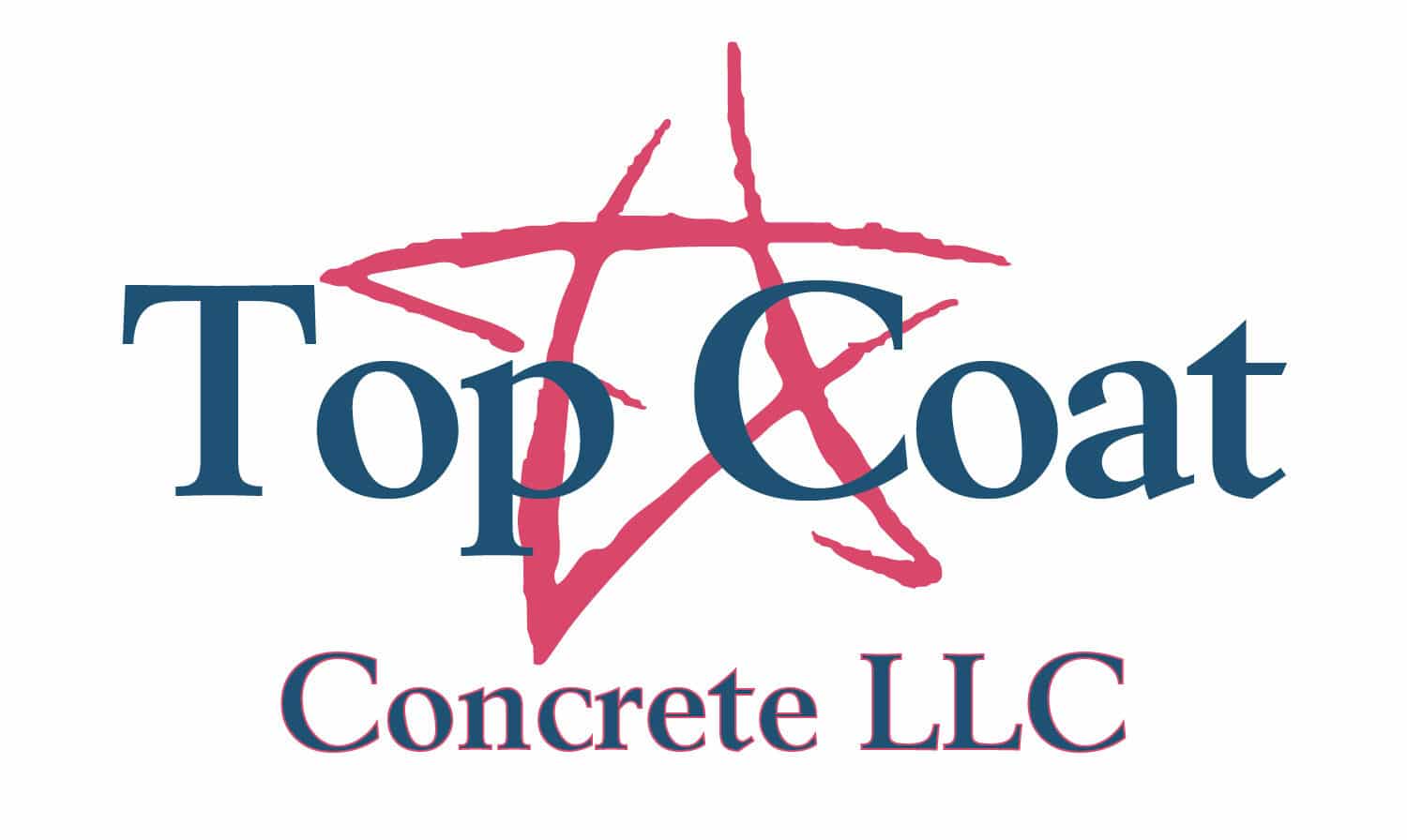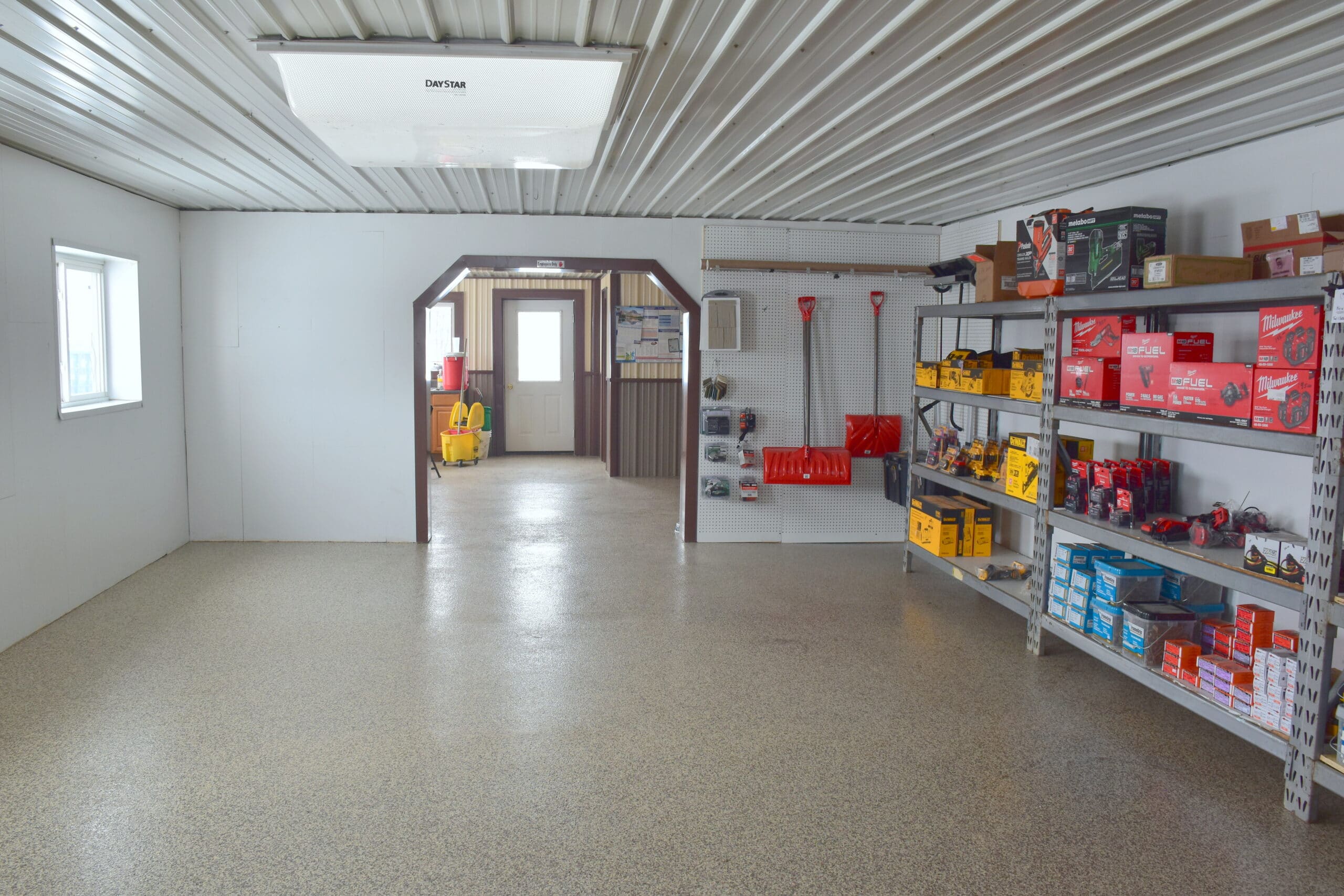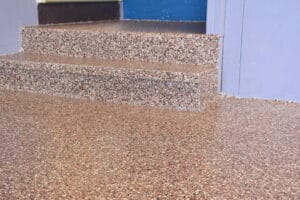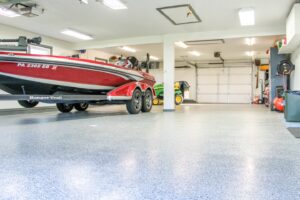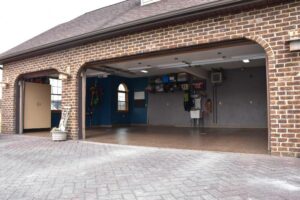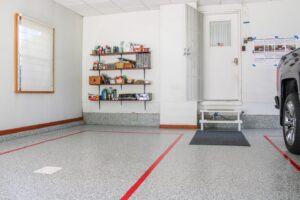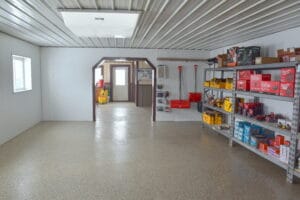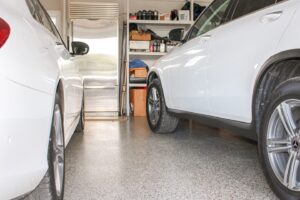What’s the Best Garage Floor Coating Option?
Your pitted, cracked and unsightly garage floor? You’re not alone.
With so much road salt through the winter in the Pittsburgh area and abuse through every season, we know just how bad garage floors can get. From spider cracking to erosion, your garage floor experiences some of the worst wear-and-tear in your entire home.
A fresh garage floor coating can help.
A garage floor coating applied properly can seal and finish your concrete floor for years, providing road salt protection, protection from hot car tires, durability against cracks and chips, and a clean, modern look that will turn heads from the curb. And it’s super easy to clean.
But you do have options! Here’s everything to know about garage floor coatings – and which is right for you.
Garage Floor Coating Options
In order of longevity and durability, here are your options.
- Polyaspartic floor coatings
- Epoxy floor coatings
- Floor paint floor coatings
- New concrete floor coatings
Polyaspartic Coatings for Garage Floors
Polyaspartic coatings are the absolute best option for coating an aging concrete garage floor.
Polyaspartic wins out for a few reasons:
It’s hard and durable, as robust as epoxy but with the added benefits of being: 1) flexible, to absorb the small contractions and expansions of concrete exposed to warm and cool temperatures throughout the year; and 2) resistant to UV light (ultraviolet), unlike epoxy which will which yellow with repeat exposure to sunlight. A good polyaspartic coating can last for 7-10 years without any maintenance.
Who It’s For: Discerning homeowners who want the best coating that will last and perform.
Epoxy Coatings for Garage Floors
Epoxy coatings are no longer used frequently in garages for a few reasons.
First, because epoxy is not UV stable, it will yellow with time and exposure to the sun that comes in naturally when your garage doors are open (not to mention windows). Second, because epoxy is so hard and inflexible, it can actually crack over time as the concrete underneath naturally expands and contracts. Polyaspartic, by contrast, will move with the concrete and resist this issue.
Finally, epoxy can actually delaminate and disconnect from the underlying concrete with exposure to hot tires, which is a real problem with garages where cars are coming in and out all year round. In fact, in some epoxy-coated garage floors where we’ve applied a new coating, we can tell exactly where cars parked and tires sat because of the chipping in those locations.
Who It’s For: Homeowners who won’t park cars in their garages, and for conditioned garage spaces.
Floor or Concrete Paint for Garage Floors
Paint for concrete is the most affordable way to coat your own garage floor, though be warned most homeowners won’t be happy with the results after a few years of regular use.
Concrete paint isn’t as hard or durable as epoxy or polyaspartic, and though it can look great after the first application, it won’t hold up for long. It’s much thinner than epoxy or polyaspartic, and it doesn’t bond as securely to the underlying concrete. Paint will peel, chip, and scratch quite easily from regular use in your garage.
Who It’s For: Homeowners on a budget who want to do it themselves, and low-traffic areas.
A New Concrete Garage Floor
Your last option, a new concrete floor will provide a great, refreshed look in your garage, but will be incredibly expensive! From the cost to break out the old concrete and then bring in new concrete will be the most expensive option, though you’ll have a beautiful new floor at the end.
Unfortunately, the same problems that resulted in your current garage floor issues will probably be back without a good garage floor coating. We recommend coating any concrete garage floor that you care about.
Who It’s For: Homeowners with deep pockets and a garage floor in really bad shape.
Common Garage Floor Coating Questions
Is polyaspartic salt and chemical resistant?
Yes, polyaspartic coatings will resist chemicals and road salt! And, polyaspartic is guaranteed not to chip or peel from hot car tires sitting on it year after year.
How much does it cost to get a garage floor coated?
Our garage floor coatings generally range from $5 to $8 per square foot, which varies based on ease of accessibility and the current state of your garage floor. For example, deep pits or scratches that require concrete repair first will increase the cost to the higher end of that range.
What should I do with the things in my garage?
Most of our customers set their things in their yard or somewhere secure on their property, but we can also provide a trailer or off-site storage in many circumstances. If you’re worried about storage, ask about options when you call or get your floor quote.
Can I pressure wash a garage floor coating?
You can gently pressure wash our polyaspartic and epoxy floor coatings, but we would not recommend pressure washing floor paint. We recommend not putting the power wash nozzle right against the concrete floor, but keep it a few inches away from the surface.
Polyaspartic Wins In Garage Floor Finishes
When it comes to the best garage floor coatings in Pittsburgh, Top Coat Concrete does it all. We provide durable, affordable, and beautiful polyaspartic floor coatings for garages that will last for years, with 24-hour installations to have you back in your garage in no time.
Learn more and get a free estimate by calling today.
